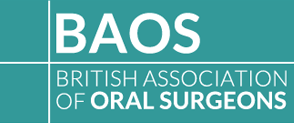In 2008 the World Health Organisation’s (WHO) devised a Surgical Safety Checklist. Following a year-long worldwide study of nearly 8,000 patients. There was clear, compelling and compounding evidence that, when this checklist was used, there was a one-third reduction in surgical deaths and complications. This checklist was introduced into every hospital in England and Wales.
There had already been reported errors of amputations of wrong limbs or the removal of a healthy kidney.
In 2009 the National Patient Safety Agency started, for the first time, to collect data on ‘never events’.
The concept of ‘never events’ was introduced in the NHS in England in April 2009, following a proposal by Lord Darzi in his report High Quality Care for All. This initiated the NHS Improvement Group to be formed.
NHS Improvement defined the term ‘never event’ as “serious incidents that are entirely preventable because guidance or safety recommendations providing strong systemic protective barriers are available at a national level, and should have been implemented by all healthcare providers”.
The term ‘dental never event’ was introduced in 2015 by NHS Improvement and following this, later that year, NHS England introduced its own National Safety Standards for Invasive Procedures (NatSSIPs) which build on the existing WHO surgical checklist. NatSSIPs offered healthcare professionals general advice on how they can enhance best practice through a series of standardised safety checks and education and training. The standards also support NHS providers to work with staff to develop and maintain their own, more detailed Local Safety Standards for Invasive Procedures or LocSSIPs.
In 2018 the National Patient Safety Agency revised it list of ‘never events’ and categorised incidents in relation to ‘surgical’, ‘medication’, ‘mental health’ and ‘general’ domains.
Today all commissioners and providers of NHS care are required to report ‘never events’ for a list maintained by NHS Improvement. Statistics are collated and published regularly.
In the year to March 2019, a total of 496 ‘never events’ were reported to NHS Improvement– and of these 42% were classified as Surgical – wrong- site. Of these, wrong tooth extraction was 20% of cases.
In 2016 a working group including the Joint Colleges of England and BAOS produced a toolkit for developing ‘LocSSIPs to avoid wrong-site extraction’. It was noted that although dental may not be on a par with the loss of a limb or major organ but it could still be devastating for both patient and clinician.
BAOS provides guidance on our website with regard to the LocSIPPs process for wrong-site extraction. We advise that in mitigating such risks it is critical that dental teams develop checklists appropriate to their specific clinical environment and provide adequate training for staff in implementation and use. There should also be active Quality Improvement of the processes involved to ensure that checklists are being used correctly and that teams can learn from mistakes – including investigation and root-cause analysis. Any “punitive” action should be avoided when incidents do occur to encourage openness.
The reporting of ‘never events’ is key to learning lessons from clinical errors although some ‘never events’ have always been contentious. As recently as 2019, wrong site local anaesthetic was downgraded. This change put an end to the unnecessary and highly stressful investigations associated with ‘never-events’.
The Home Countries have their own way of reporting these clinical errors;
- In England never events must be reported via the Serious Incident Framework. In 2021, this will be replaced with the Patient Safety Response Framework (PSIRF).
- In Wales, never events must be reported to the National Reporting and Learning System (NRLS).
- The Scottish Government implemented Healthcare Improvement Scotland and Northern Ireland also has its own reporting requirements through the Regulation and Quality Improvement Authority (RQIA)
Deliberate failure to report a never event is likely to constitute a serious failing and breach of Care Quality Commission, Health Inspectorate Wales, Care Inspectorate in Scotland or RQIA requirements.
It must be remembered though, that it is the GDC who sets standards for professionalism within the dental profession, which include a duty of candour for all dental professionals and how we should all respond when there has been an unexpected or unintended incident resulting in death or harm. This includes notifying the person affected and providing an apology and account of what happened.
Saying sorry is not the same as admitting liability.

